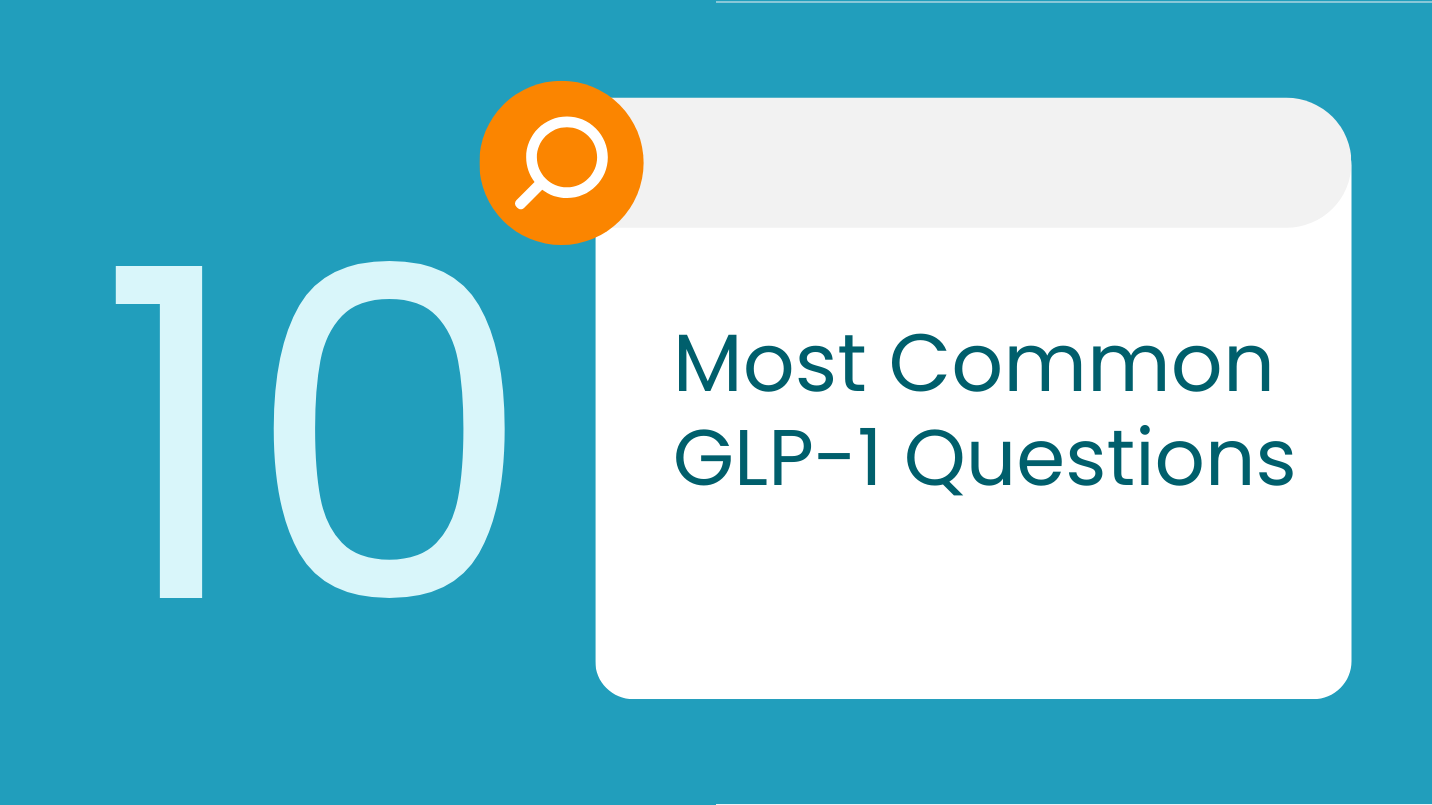The Benefits of GLP-1s for “Type 3 Diabetes” (Dementia)
Using GLP-1 receptor agonists to prevent dementia

Dementia is a complex chronic illness that affects at least 10% of US adults who are older than 65 years, and it has significant negative impacts on cognition, memory, and functional ability. Dementia has traditionally been thought to be a common result of aging and genetics, but more recent evidence suggests links between other diseases and dementia, like insulin resistance.
The underlying changes that occur in both insulin resistance and dementia are so closely matched that dementia is often called “insulin resistance of the brain” or “type 3 diabetes.” We will discuss the similarities between dementia and insulin resistance, focusing on how glucagon-like peptide-1 (GLP-1) receptor agonists can help prevent and improve dementia.
What is dementia?
Dementia is a broad diagnosis of neurodegenerative disorders characterized by cognitive decline and memory loss. The most common type of dementia is Alzheimer's disease. Other types of dementia you may see are vascular dementia and Lewy body dementia.
Alzheimer’s disease
Alzheimer's disease accounts for at least 65% of dementia cases. In Alzheimer’s disease, there is the accumulation of beta-amyloid plaques and tau protein tangles within the brain. Over time, these cause progressive cognitive decline, memory loss, and neuronal (brain cell) death. Patients with Alzheimer’s disease usually have memory loss, confusion, difficulties in communication, and behavioral disturbances.
Other dementias
Vascular dementia results from impaired blood circulation to the brain, which usually happens after strokes or when plaques build up in small blood vessels. The brain damage that occurs worsens cognitive function, such that patients have trouble with decision-making, focusing, and executive functioning (often called higher-order thinking). However, symptoms vary widely depending on the severity of circulatory damage.
Lewy body dementia involves abnormal protein deposits in the brain, which are called Lewy bodies. It is similar to Alzheimer's and Parkinson's diseases in terms of symptoms, including problems like cognitive decline, memory loss, waxing and waning mentation, tremors, and rigidity.
What is insulin resistance?
Insulin is a complex endocrine signaling hormone that affects essentially every organ in the body. Insulin resistance occurs when insulin levels remain high. Overstimulation by consistently high levels of insulin in the blood causes cells to become less responsive to the effects of insulin. This results in elevated blood glucose levels and chronic inflammation. Over time, insulin resistance causes weight gain and can lead to type 2 diabetes mellitus.
Type 3 diabetes as Dementia
Insulin resistance impacts more than just blood sugar. Cells on organs have receptors to which insulin binds and communicates. When this communication fails, insulin resistance can cause problems in the liver, adipose (fat) tissue, pancreas, heart and blood vessels, brain, and many other organs.
Studies suggest that insulin resistance is actually a cause of dementia. In fact, dementia has been termed “insulin resistance of the brain” and “type 3 diabetes” because the underlying changes that occur within brain cells in dementia are closely matched to the changes that occur in insulin resistance and diabetes.
What are GLP-1 receptor agonists?
GLP-1 receptor agonists are used to treat type 2 diabetes mellitus and obesity. Because their mechanism of action improves sensitivity to insulin, GLP-1 receptor agonists, such as semaglutide, liraglutide, and dulaglutide, treat insulin resistance as well.
GLP-1 receptor agonists work by increasing the effects of a GLP-1, a neuroendocrine hormone that is produced in the gut in response to food intake. The hormone GLP-1 helps lower blood glucose by sending it to organs and tissues to be used for energy, and it also improves cells’ responsiveness to insulin stimulation, including brain cells.
GLP-1 receptor agonists and dementia
By improving insulin sensitivity within brain cells, GLP-1 receptor agonists have been shown to lower the risk of dementia in people who have diabetes mellitus. Additional clinical evidence also suggests that GLP-1 receptor agonists are effective treatments for dementia, although additional research is needed to study this use. As another benefit, GLP-1 receptor agonists are known to reduce the risk of cardiovascular disease.
Other benefits of GLP-1 receptor agonists
There are many benefits of GLP-1 receptor agonists, and ongoing research continues to identify more potential benefits.
Blood glucose regulation
Insulin sensitivity improvement
Lipid metabolism improvement
Weight loss
Lowered inflammation
Cardiovascular risk reduction
Fatty liver disease treatment
Chronic kidney disease risk reduction
Dementia risk reduction and potential treatment
Risk reduction of obesity-associated cancers
What we need to still learn
Research is ongoing to discover additional potential uses and benefits of GLP-1 receptor agonists. Here are examples of potential treatment uses:
Dementia
Non-alcoholic fatty liver disease (NAFLD) and non-alcoholic steatohepatitis (NASH)
Alcohol abuse disorder
Psoriasis
Depression
Limitations of current research
Many of the studies available about the uses of GLP-1 receptor agonists beyond the FDA-approved uses of type 2 diabetes mellitus and obesity are in the earlier stages. Insufficient time has elapsed for larger and longer prospective clinical trials that follow patients long-term to assess risks and benefits. In addition, most of the sample sizes have been small and less comprehensive. Given large positive findings thus far, additional research will help understand just how effective GLP-1 receptor agonists may be for many health conditions.
*Insert how you want to segway this to Agile*
Preventative treatment is key for long-term health
While more research is needed before GLP-1 receptor agonists can become a recognized treatment for dementia, reducing your insulin sensitivity could be a way to prevent it. If you currently struggle with excess weight and/or insulin resistance, and other forms of treatment like lifestyle changes haven’t worked, you might consider GLP-1s. Reducing insulin sensitivity has been shown to prevent several chronic diseases, like heart disease, to promote better long-term health..
Interested in learning more about how GLP-1s for weight loss? If you qualify for the program, you’ll speak to one of our licensed providers in a no-cost consultation to determine if the treatment is right for you.
Ready to make a change? See if you qualify here!


